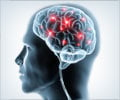Are you or your loved ones having trouble concentrating or remembering things and feeling emotionally detached or fuzzy? Medindia's Dementia Risk Calculator displays your level of risk of dementia and it also gives some tips to prevent the onset of Dementia.
Symptoms of Dementia
- Memory Loss (2✔)
- Difficulty Concentrating
- Confusion in Performing Everyday Activities
- Struggling with Conversations or Expressing Thoughts.
- Disorientation leads to a Sense of being Lost
- Mood Changes
Types of Dementia
- Alzheimer's Disease: The most common form of dementia, characterized by progressive memory loss and cognitive decline (3✔).
- Vascular Dementia: Cognitive impairment due to reduced blood flow to the brain, often following strokes.
- Lewy Body Dementias: Dementia is characterized by abnormal protein deposits leading to cognitive fluctuations, visual hallucinations, and motor symptoms.
- Young Onset Dementia: Dementia is diagnosed in individuals under 65 years, encompassing various types. It †accounts for about 5% of all dementia
- Childhood dementia: This is often diagnosed at 14 years of age or less. It is due to neurodegenerative disorders in children that cause cognitive decline and loss of function.
- Frontotemporal Dementia (FTD): A group of disorders causing personality and behavioral changes due to degeneration of the frontal and temporal lobes.
- Alcohol-Related Brain Injury (ARBI): Cognitive decline resulting from chronic alcohol abuse, affecting memory and behavior.
- HIV-Associated Dementia: Cognitive impairment linked to HIV infection, manifesting as memory problems and confusion.
- Chronic Traumatic Encephalopathy (CTE) Dementia: A neurodegenerative disease from repeated head injuries, leading to memory loss and mood changes.
- Down Syndrome and Alzheimer's Disease: Individuals with Down syndrome have an increased risk of developing Alzheimer's at an earlier age.
- Posterior Cortical Atrophy (PCA): A rare dementia affecting visual processing and spatial awareness, while early memory may remain intact.
7 Levels of Dementia
- No Decline: No symptoms.
- Very Mild Decline: Mild forgetfulness.
- Mild Decline: Noticeable memory issues.
- Moderate Decline: Needs help with finances, and social withdrawal.
- Moderately Severe Decline: Daily assistance is required.
- Severe Decline: Major personality changes, needs full assistance.
- Very Severe Decline: Loss of speech, requires 24/7 care (4✔).
Diagnosis of Dementia
Diagnosing dementia involves a comprehensive evaluation by a healthcare professional, including a review of medical history, cognitive tests, neurological assessments, brain imaging (CT, MRI, or PET scans), laboratory tests, and psychiatric evaluations to determine the underlying cause and extent of cognitive impairment (5✔).
Treatment of Dementia
Medications such as Cholinesterase Inhibitors (e.g., donepezil), Memantine, Lecanemab and Donanemab (5✔).
Therapies like occupational therapy, environmental modifications, simplifying tasks by breaking tasks into smaller steps, and establishing routines.
A holistic dementia care plan includes personalized support for daily living, focusing on medication and management, health monitoring, and caregiver support to improve quality of life (6✔).
Foods Recommended For a Healthy Brain
| ❖ | Oily fish such as salmon, herring, and mackerel are an excellent source of omega-3 fatty acids, which boost your brain to stay healthy (7✔). |
| ❖ | Olive oil is a healthy fat source in the diet, which can help reduce cholesterol levels and blood pressure. It lowers the risk of memory disorders. |
| ❖ | Berries and deep coloured fruits and vegetables such such as strawberries, blueberries, blackberries, spinach, beetroot, and beans are rich in antioxidants. It helps in protecting brain cells from damage. |
| ❖ | Nuts, seeds and avocados that contain polyunsaturated fatty acids and monounsaturated fatty acids may reduce your risk of dementia and depression. |
| ❖ | Dark chocolate in small amounts increases the good cholesterol in the body and protects the bad fat from oxidation and the consequent cell proliferation. |
| ❖ | Green tea is a rich source of antioxidants and it improves brain function by restoring damaged brain cells. |
Facts about Dementia
| ❖ | One in six people over the age of 80 have dementia. |
| ❖ | According to†World Health Organization (WHO), Every year, there are more than 10 million new cases of dementia globally, which means a new case is diagnosed every 3.2 seconds |
| ❖ | In 2020, over 55 million people globally were living with dementia. This number is expected to nearly double every 20 years, reaching 78 million in 2030 and 139 million by 2050. Currently, 60% of those with dementia reside in low- and middle-income nations (8✔). |
| ❖ | Caregivers of dementia patients experience†high strain. Caring for dementia patients is overwhelming for caregivers. They experiences physical, emotional and economic pressures. |
| ❖ | There is no cure for dementia. Delaying the onset of dementia by five years would bring down the number of deaths to half, saving 30,000 lives a year. |
FAQs
1. Difference Between Dementia and Alzheimerís Disease
Dementia is an umbrella term for a variety of cognitive impairments, while Alzheimerís disease is the most common specific type of dementia, characterized by progressive memory loss and cognitive decline (9✔).
2. How can dementia be prevented?
Dementia may be prevented by maintaining a healthy lifestyle that includes regular physical activity, a balanced diet, cognitive engagement, social interaction, and stress management (10✔).
3. When to See a Doctor for Memory Issues?
Seek a doctorís advice if there are noticeable memory issues, confusion with familiar tasks, changes in mood, or difficulties in judgment(11✔). You can find doctors to assist with your doubts from the extensive list of doctor directory in medindia.
4. What are the six habits to reduce dementia?
The six habits include(12✔):
- Regular physical exercise
- Healthy eating (Mediterranean or MIND diet)
- Cognitive engagement (learning new skills)
- Social interaction
- Stress management
- Avoiding harmful substances (like tobacco and excessive alcohol).
5. What are the three golden rules of dementia?
The three golden rules are (13✔):
- Donít ask direct questions
- Listen to the expert Ė the person with dementia Ė and learn from them
- Donít contradict
6. What is the 2-finger test for dementia?
The 2 Finger Test, also referred to as the Interlocking Finger Test (ILFT), is a cognitive exercise designed to help detect early signs of dementia. In this test, the examiner demonstrates a hand gesture, such as interlocking fingers, and the patient is asked to replicate it (14✔).
7. Is dementia hereditary?
While some forms of dementia have a genetic component, lifestyle factors also play a significant role; having a family history may increase risk but does not guarantee development (15✔).
8. What are the don'ts of dementia for patient caretakers?
- Donít reason (16✔)
- Donít Engage in arguments
- Donít confront
- Donít remind them of their forgetfulness
- Donít question their recent memory
- Donít take their behavior personally
9. What is the CDR for Dementia?
The Clinical Dementia Rating (CDR) is a scale used to assess and stage the severity of dementia from 0 (no dementia) to 3 (severe dementia), based on cognitive and functional assessments (17✔).
Recommended Readings on Dementia Risk
Vascular dementia is the second most common form of dementia. Though it has no cure, you can still learn to manage its symptoms and lead a joyful life.
Speaking two languages can help delay the onset of Alzheimer's symptoms by as long as five years, Canadian scientists said Tuesday.
Dementia is a broad category of brain diseases that cause a long term and often gradual decrease in the ability to think and remember such that a person's daily functioning is affected.
The human brain is exquisitely intrinsic and is the seat of all emotions. If you are curious about what makes you bad, sad, silly or glad this quiz on the brain will satiate ...
"Without memory, there is no culture. Without memory, there would be no civilization, no society, no future." - Elie Wiesel Whether it is a short term memory loss just as Dory in 'Finding Nemo' had or a more permanent one ...
Alzheimer's disease is a complex brain disorder that triggers the most common form of dementia. The slide show will show how patients need support and care as dementia progresses.
Enhance your brain health by adding super foods to your daily diet. Here are 10 of them.
Eating healthy nutritious foods can help improve memory power and prevent brain-related illness. Eat foods that have numerous health benefits for keeping your brain healthy.
An active brain can certainly help in improving memory by strengthening the connections between neural impulses in brain.
Alzheimer's Risk Assessment Calculator is a tool to measure the level of Alzheimer's disease. It also provides tips to prevent Alzheimer's disease.





















This is very good for free about our various health aspects and it is very handy to check very easily several factors related to our health conditions.